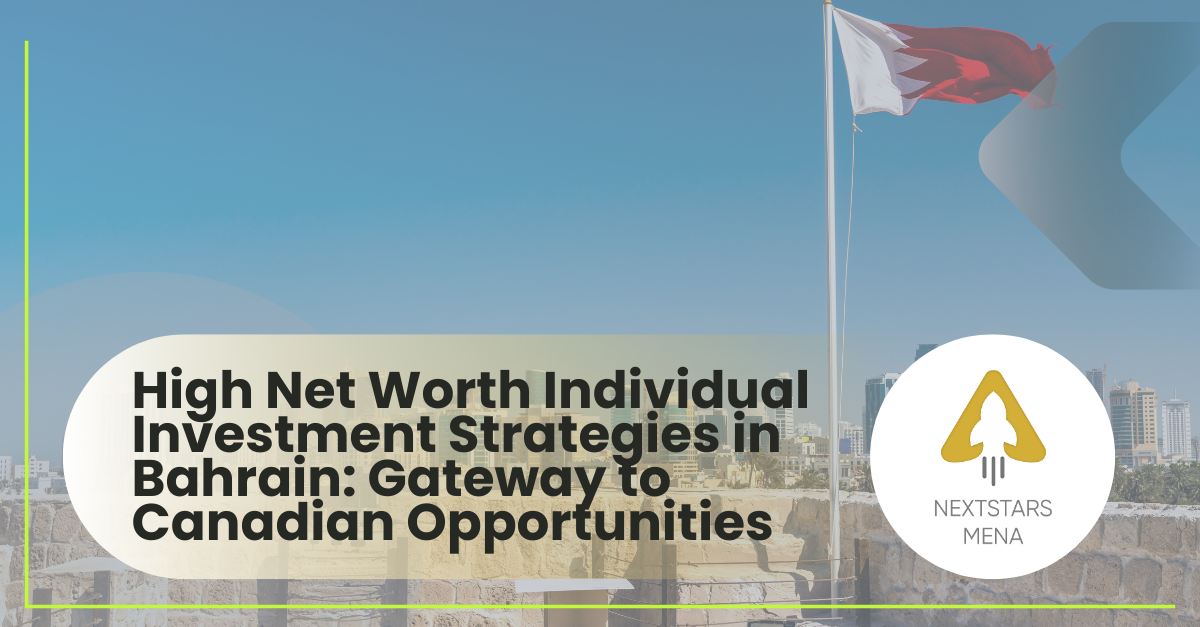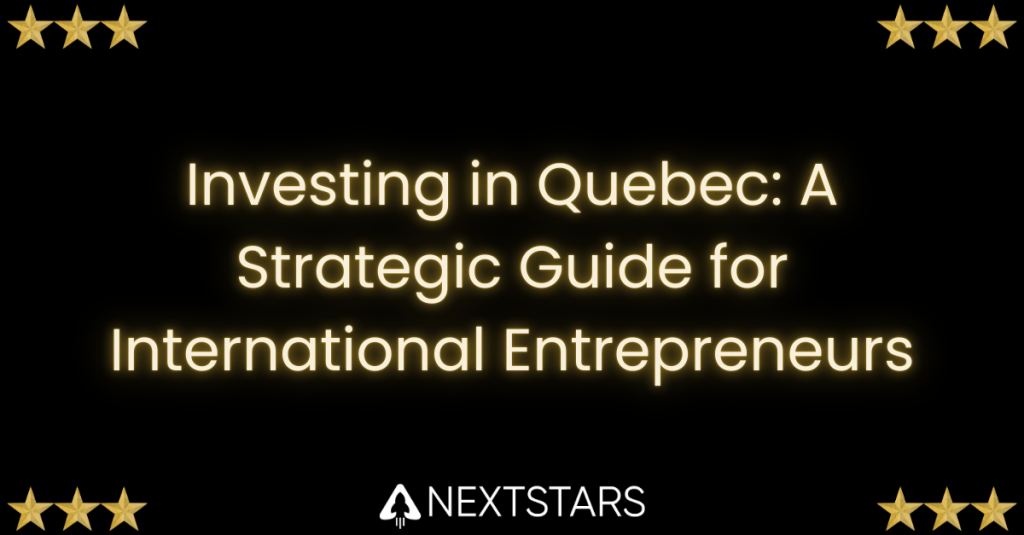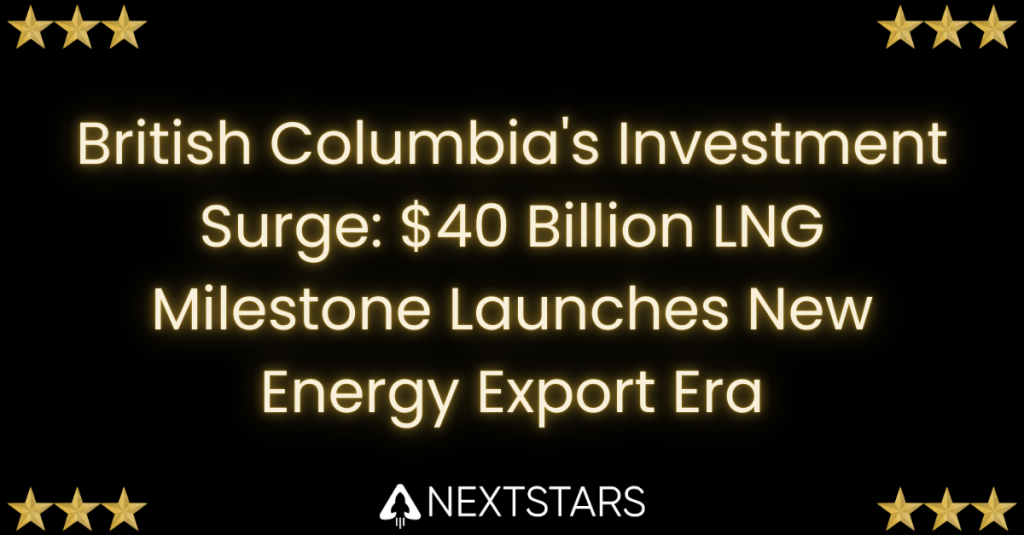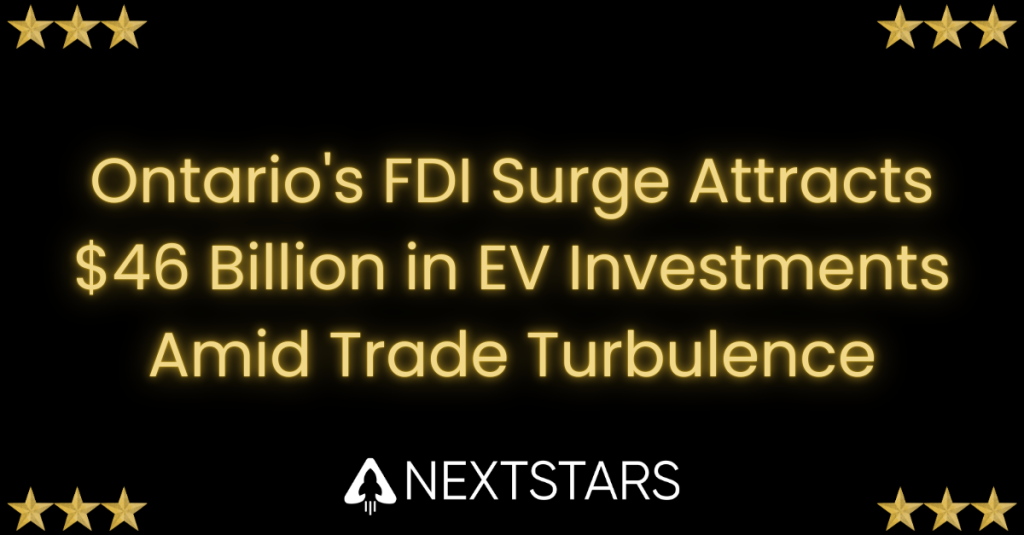Executive Summary
Bahrain continues to solidify its position as a leading wealth management hub in the Gulf Cooperation Council (GCC), with assets under management projected to reach US$4.02 billion by 2030. This growth, combined with evolving HNWI preferences toward Islamic finance, ESG investments, and international diversification, presents significant opportunities for Canadian businesses and investment platforms.
As Canada strengthens its economic ties with the Middle East and North Africa (MENA) region, particularly through ongoing Foreign Investment Promotion and Protection Agreement (FIPA) negotiations with Bahrain, the timing is optimal for establishing strategic investment corridors between these markets. Canadian sectors particularly aligned with Bahraini HNWI interests include cleantech, sustainable technology, and innovation driven ventures that combine financial returns with positive societal impact.
Part I: Bahrain’s HNWI Investment Landscape
Current Market Dynamics
The Bahraini wealth management market demonstrates robust growth trajectories, with Financial Advisory dominating at a projected US$3.58 billion market volume in 2025. The sector benefits from several converging factors that make Bahrain an attractive wealth management center:
Strategic Positioning: Bahrain leverages its position as a leading Islamic finance hub, with a sophisticated regulatory framework that has evolved over decades. The country offers both conventional and Sharia compliant investment products, creating a unique dual system that appeals to diverse investor preferences.
Digital Transformation: The wealth management sector is experiencing significant digital disruption, with fintech companies introducing innovative platforms that provide enhanced access to investment advice and portfolio management tools. This technological advancement aligns with younger generation HNWIs who prioritize digital engagement and self service capabilities.
Personalization Trend: Bahraini HNWIs increasingly seek customized investment strategies tailored to their specific financial goals and risk tolerance. This demand has led to the emergence of boutique wealth management firms specializing in bespoke investment solutions, moving away from standardized product offerings.
Investment Preferences of Bahraini HNWIs
Islamic Finance Dominance
A remarkable shift toward Islamic finance characterizes the current investment landscape. Younger generations of corporate and wealth management clients show increased receptivity to Sharia compliant products, viewing them as aligned with broader investment considerations including environmental sustainability and social impact.
The acceptance threshold for returns has evolved significantly. While conventional finance might offer 6% to 6.5% returns, many HNWIs prioritize religious alignment, accepting returns that cover inflation and Zakat obligations (2.5% annually) when investing in Islamic treasury products. This preference stems from their core businesses often generating double digit returns, reducing pressure on passive investment performance.
ESG and Impact Investment Focus
Environmental, Social, and Governance (ESG) considerations have become central to investment decisions. The convergence between Islamic finance principles and sustainable investment creates natural synergies, as both emphasize ethical considerations, social responsibility, and long term value creation. Bahraini HNWIs increasingly seek investments that generate positive societal and environmental impacts alongside financial returns.
International Diversification Strategy
High net worth individuals in Bahrain actively pursue geographic diversification to mitigate regional risks and access global growth opportunities. Key characteristics of their international investment approach include:
- Developed Market Exposure: Significant allocations to North American and European markets for stability and liquidity
- Emerging Market Opportunities: Strategic investments in high growth Asian and African markets
- Real Estate Holdings: International property investments, particularly in gateway cities offering stable returns and capital appreciation
- Alternative Investments: Growing interest in private equity, venture capital, and hedge funds across multiple jurisdictions
Generational Wealth Transfer Considerations
The global wealth transfer phenomenon significantly impacts Bahrain’s wealth management landscape. With USD 83.5 trillion expected to transfer to younger generations globally by 2048, Bahraini wealth managers must adapt their strategies to meet evolving expectations.
Next generation HNWIs demonstrate distinct characteristics:
- Strong preference for digital platforms and mobile first experiences
- Emphasis on transparency and education in investment processes
- Integration of values based investing with traditional wealth preservation
- Expectation of comprehensive value added services including tax planning, estate management, and succession planning
Part II: Canada Bahrain Economic Relations
Bilateral Trade and Investment Framework
Canada and Bahrain maintain modest but growing economic relations, with bilateral merchandise trade reaching $275.8 million in 2021. Canadian exports to Bahrain totaled $217.6 million, while imports stood at $58.2 million, indicating a positive trade balance favoring Canada.
Key Canadian Exports to Bahrain:
- Industrial machinery and equipment
- Agricultural products, particularly cereals and pulses
- Iron ore and minerals
- Transportation equipment
- Pharmaceutical products
Strategic Cooperation Areas: The relationship extends beyond trade to encompass:
- Regional security collaboration through Combined Task Force 150
- Defense partnerships with Canadian Forces deployed in Bahrain
- Educational exchanges and technical cooperation
- Financial services collaboration
Foreign Investment Promotion and Protection Agreement (FIPA)
Canada and Bahrain have been negotiating a Foreign Investment Promotion and Protection Agreement since 2009, aimed at protecting and promoting bilateral investments through legally binding rights and obligations. The agreement seeks to:
- Establish clear rules for investment treatment
- Provide dispute resolution mechanisms
- Ensure transparency and predictability in investment relations
- Safeguard policy space for environmental and social regulations
The FIPA represents a critical framework for facilitating Bahraini investment into Canada, particularly in sectors identified as strategic priorities including education, infrastructure, healthcare, and clean technology.
Regional Integration Advantages
Bahrain’s membership in multiple trade agreements enhances its attractiveness as an investment gateway:
Gulf Cooperation Council (GCC): Access to a combined market of over 50 million consumers with GDP exceeding $2 trillion
U.S. Bahrain Free Trade Agreement: The first FTA between the United States and a Gulf state, providing preferential access to American markets
Greater Arab Free Trade Area (GAFTA): Duty free access to 17 Arab states, with Bahrain exports totaling USD 6.4 billion in 2021
These agreements position Bahrain as an ideal hub for companies seeking to access broader Middle Eastern and North African markets.
Part III: Canadian Investment Opportunities for Bahraini HNWIs
1. Clean Technology and Sustainable Innovation
Canada has emerged as a global cleantech powerhouse, ranking #2 on the Global Cleantech Innovation Index 2023. The sector presents compelling opportunities for Bahraini investors seeking to combine financial returns with environmental impact.
Market Dynamics:
- Canadian cleantech sector projected to reach $650 billion market value by 2030
- Over 2,427 cleantech firms operating across Canada as of 2022
- Record investment of $1.2 billion in venture capital funding in 2022
- Government commitment of over $100 billion for climate action and clean technology
Investment Highlights:
Carbon Capture and Storage: Companies like Carbon Engineering (acquired for $1.1 billion) and CarbonCure Technologies lead global innovation in carbon removal technologies. These solutions align with Gulf states’ interests in maintaining energy sector relevance while addressing climate concerns.
Renewable Energy Technologies: Canadian firms excel in solar, wind, and emerging technologies like geothermal energy. Eavor Technologies’ innovative geothermal solutions and General Fusion’s fusion power development represent frontier investment opportunities.
Energy Storage Solutions: Companies like e Zinc and Peak Power offer breakthrough technologies for grid scale energy storage, addressing critical infrastructure needs as renewable energy deployment accelerates globally.
Sustainable Materials: pH7 Technologies’ metal extraction methods and Summit Nanotech’s lithium extraction technologies position Canada at the forefront of sustainable resource development, crucial for electric vehicle and renewable energy supply chains.
2. Technology and Innovation Ecosystem
Canada’s technology sector offers diverse opportunities aligned with Bahraini investment preferences:
Artificial Intelligence and Machine Learning: Toronto and Montreal have emerged as global AI hubs, with companies developing applications across healthcare, finance, and industrial sectors.
Quantum Computing: Canadian leadership in quantum technologies presents early stage investment opportunities in transformative computing capabilities.
Agricultural Technology: Precision agriculture solutions addressing food security align with MENA region priorities, offering both financial returns and strategic value.
3. Real Estate and Infrastructure
Canadian real estate markets offer stability and growth potential attractive to international investors:
Gateway Cities: Toronto, Vancouver, and Montreal provide liquid markets with strong fundamentals Purpose Built Rentals: Growing sector addressing housing supply constraints Industrial and Logistics: E commerce driven demand creating compelling opportunities Mixed Use Developments: Urban intensification projects combining residential, commercial, and community spaces
4. Healthcare and Life Sciences
Canada’s healthcare innovation sector presents opportunities particularly relevant to Gulf investors:
Digital Health Platforms: Telemedicine and remote patient monitoring solutions Biotechnology: Drug development and personalized medicine ventures Medical Devices: Innovative diagnostic and therapeutic technologies Senior Care: Solutions addressing aging demographics, relevant to evolving Gulf demographics
Part IV: Strategic Entry Pathways for Bahraini Investors
Canada’s Startup Visa Program
The Startup Visa Program offers a unique pathway for Bahraini entrepreneurs and investors to establish presence in Canada while accessing its innovation ecosystem.
Program Structure:
- Designed for innovative entrepreneurs with scalable business concepts
- Provides permanent residence for successful applicants and families
- Requires endorsement from designated Canadian organizations
- Minimum investment thresholds: $200,000 from venture capital funds or $75,000 from angel investor groups
Recent Program Updates (2024 2025):
- Introduction of annual caps: 10 applications per designated organization
- Priority processing for Tech Network endorsed businesses
- Extended work permit validity reducing renewal requirements
- Focus on high impact ventures with significant economic benefits
Strategic Advantages for Bahraini Investors:
- Direct access to North American markets
- Pathway to Canadian citizenship after three years
- Ability to leverage Canada’s trade agreements globally
- Access to world class talent and research institutions
Corporate Venture and Strategic Partnerships
Bahraini corporations and family offices can establish strategic presence through various mechanisms:
Corporate Venture Capital: Direct investment in Canadian startups through corporate venture arms, accessing innovation while supporting portfolio companies’ Middle East expansion.
Joint Ventures: Partnership structures combining Bahraini capital with Canadian technology and market access.
Accelerator Partnerships: Collaboration with Canadian accelerators and incubators to source and develop ventures. Organizations across Canada offer structured programs supporting international partnerships, including specialized platforms focusing on climate technology and sustainable innovation that bridge Canadian expertise with global markets.
For instance, NextStars represents one such platform, operating as a global venture studio that specializes in transforming innovative ideas into climate conscious companies, with particular expertise in supporting international entrepreneurs through comprehensive acceleration programs.
Technology Transfer: Licensing and commercialization agreements for Canadian innovations in Gulf markets.
Fund Investment Opportunities
Venture Capital Funds: Canadian VC funds actively seek limited partner investments, offering:
- Diversified exposure to Canadian innovation
- Professional management and due diligence
- Access to deal flow and co investment opportunities
- Typical fund sizes ranging from $50 million to $500 million
Specialized Climate Funds: Dedicated funds focusing on clean technology and climate solutions, aligning with Islamic finance principles and ESG mandates.
Growth Equity Opportunities: Later stage investments in proven Canadian companies preparing for international expansion.
Direct Asset Acquisition
Strategic Acquisitions: Purchasing established Canadian companies to access technology, talent, and market position.
Intellectual Property: Acquiring patents and technologies for deployment in MENA markets.
Resource Assets: Investment in Canadian natural resources, particularly critical minerals essential for clean energy transition.
Part V: Risk Considerations and Mitigation Strategies
Market Risks
Currency Fluctuation: The Canadian dollar’s volatility against Gulf currencies requires hedging strategies. Consider natural hedges through revenue generation in multiple currencies or formal hedging instruments.
Interest Rate Environment: Rising interest rates impact asset valuations, particularly in real estate and growth technology sectors. Diversification across asset classes and investment stages provides protection.
Regulatory Changes: Evolution in foreign investment rules, tax policies, and sector specific regulations requires ongoing monitoring. Engaging local legal and tax advisors ensures compliance and optimization.
Operational Considerations
Due Diligence Requirements: Canadian investment environment emphasizes transparency and governance. Comprehensive due diligence processes, including financial, legal, technical, and ESG assessments, are essential.
Cultural Adaptation: Success requires understanding Canadian business culture, emphasizing collaboration, diversity, and sustainable practices. Building local relationships and advisory boards facilitates market entry.
Geographic Dispersion: Canada’s vast geography creates distinct regional markets. Focus initial investments in major centers before expanding to secondary markets.
Strategic Mitigation Approaches
Staged Investment Strategy: Begin with smaller investments to understand market dynamics before scaling commitments.
Local Partnerships: Collaborate with Canadian partners providing market knowledge, operational expertise, and network access.
Diversification: Spread investments across sectors, stages, and geographies to minimize concentration risk.
Active Management: Maintain ongoing engagement with portfolio companies and fund managers to monitor performance and identify opportunities.
Part VI: Implementation Roadmap
Phase 1: Market Entry (Months 1-6)
Establish Relationships
- Engage Canadian trade commissioners and investment promotion agencies
- Connect with designated organizations under the Startup Visa Program
- Identify potential partners, advisors, and co investors
- Attend key Canadian investment conferences and sector events
Conduct Market Research
- Analyze specific sector opportunities aligned with investment thesis
- Evaluate regulatory requirements and tax implications
- Assess competitive landscape and market dynamics
- Identify target investments or partnership opportunities
Phase 2: Initial Investments (Months 6-12)
Execute Pilot Investments
- Complete 2 to 3 initial investments to test market approach
- Focus on sectors with clear synergies to existing portfolio
- Establish Canadian entity structure if required
- Build local team or advisory capacity
Develop Network
- Join relevant industry associations and investor groups
- Establish relationships with Canadian financial institutions
- Connect with university research centers and innovation hubs
- Engage with government programs supporting foreign investment
Phase 3: Scale and Optimize (Months 12-24)
Expand Investment Activity
- Increase investment pace based on initial learnings
- Explore co investment opportunities with Canadian partners
- Consider establishing permanent Canadian presence
- Develop thesis for specific sectors or investment stages
Strategic Integration
- Facilitate portfolio company expansion to MENA markets
- Leverage Canadian operations for broader North American access
- Explore technology transfer and licensing opportunities
- Build bridges between Canadian and Gulf ecosystem stakeholders
Phase 4: Long term Value Creation (24+ Months)
Portfolio Development
- Support portfolio company growth through board participation
- Facilitate strategic partnerships and customer introductions
- Enable international expansion leveraging investor networks
- Consider exit opportunities through strategic sales or public markets
Ecosystem Leadership
- Participate in policy discussions supporting Canada Gulf economic ties
- Support entrepreneurship programs bridging both markets
- Share expertise through speaking engagements and thought leadership
- Mentor next generation entrepreneurs and investors
Conclusion
The convergence of Bahraini HNWI investment preferences with Canadian innovation strengths creates compelling opportunities for strategic capital deployment. As Bahraini investors increasingly seek international diversification, impact aligned investments, and exposure to transformative technologies, Canada’s cleantech leadership, stable investment environment, and strategic global position offer an ideal destination.
The ongoing evolution of bilateral relations, including FIPA negotiations and growing trade ties, provides a supportive framework for deepening investment relationships. Canadian sectors particularly aligned with Bahraini interests include clean technology, sustainable innovation, healthcare, and real estate, each offering distinct value propositions combining financial returns with broader strategic benefits.
Success in Canadian markets requires thoughtful approach, recognizing the importance of local partnerships, cultural understanding, and long term commitment. The investment pathways available, from the Startup Visa Program to direct venture investments and strategic partnerships, provide flexibility for different investor profiles and objectives.
As global wealth management continues evolving toward sustainable, technology enabled, and values aligned approaches, the Canada Bahrain investment corridor represents a strategic opportunity to access North American innovation while contributing to global sustainability goals. For Bahraini HNWIs and institutional investors, Canada offers not just investment returns but participation in building the sustainable economy of the future.
The time is optimal for Bahraini investors to explore Canadian opportunities, leveraging the country’s innovation ecosystem, supportive investment climate, and strategic position to create value while advancing shared objectives of economic prosperity and sustainable development. Through careful planning, strategic partnerships, and commitment to long term value creation, Bahraini investors can successfully navigate Canadian markets while contributing to strengthening bilateral economic ties between these complementary economies.
Read more of our blogs and articles here.
This report provides general information about investment opportunities and should not be construed as investment advice. Prospective investors should conduct their own due diligence and consult with qualified advisors before making investment decisions.





